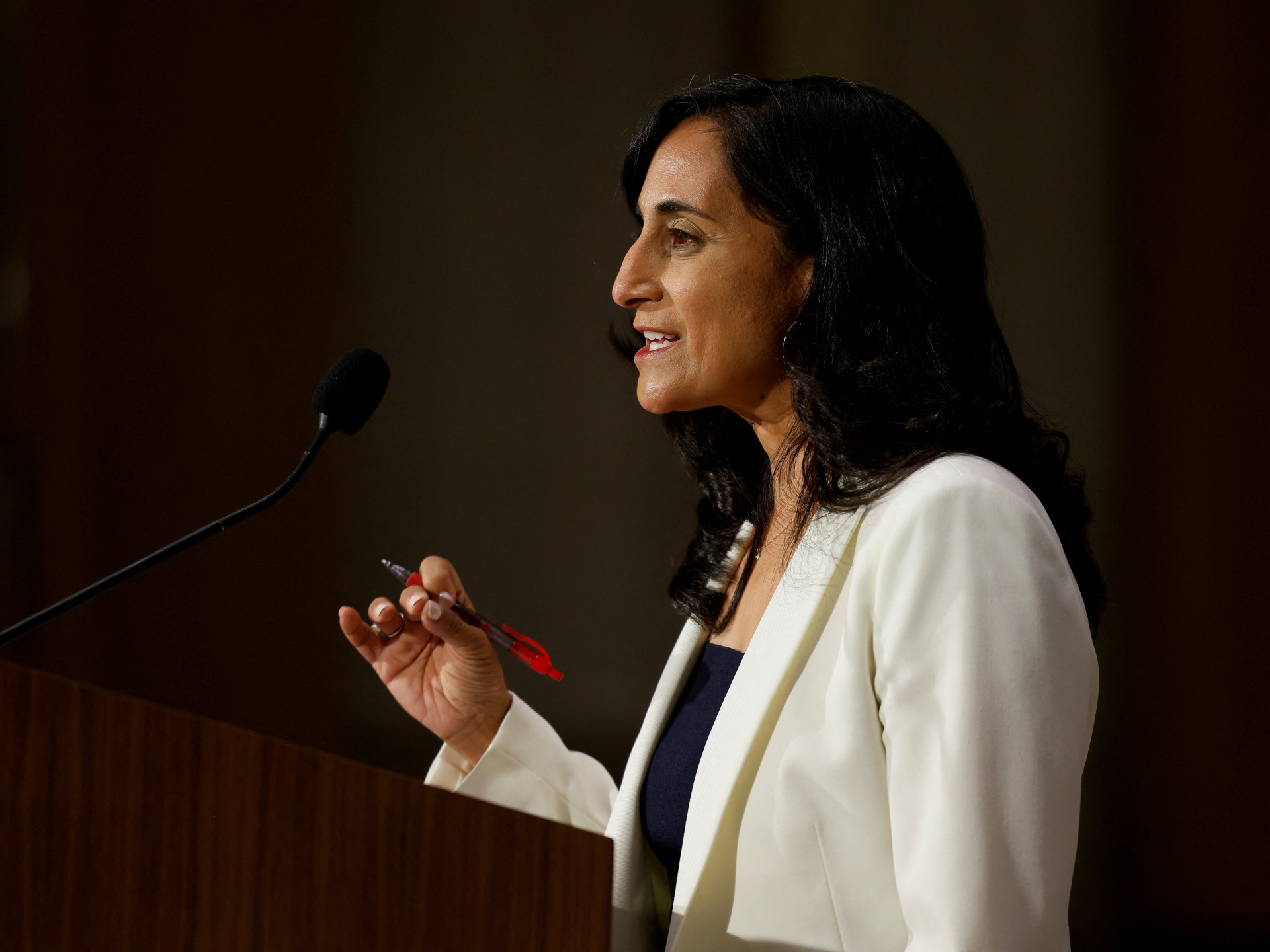|
Getting your Trinity Audio player ready...
|
The move is meant to make the investigation and prosecution of sexual offences more impartial.
Canada has announced that it will remove the military from investigating and prosecuting alleged sexual offences within the armed forces, in a step to promote transparency and respond to problems identified in a report earlier this year.
Canada’s defence minister Anita Anand presented a report before Canada’s parliament on Tuesday, promising to make changes to the way sexual misconduct allegations are handled and to act on recommendations made by a former Supreme Court justice in May.
“This time is different,” Anand told reporters on Tuesday. “We are here with a road map for progress.”
Canada’s military has been roiled by allegations of sexual misconduct and assault over the last several years, including allegations against high-ranking officers. Previous efforts at reform have fallen short, and Anand’s report did not offer a timeline for implementing key recommendations. Some, she said, could take years.
“As I highlight in my report to Parliament, we are not rejecting any of Madame Arbour’s recommendations. Rather, we are working to address all of her findings,” Defence Min. Anita Anand says as she discusses govt’s response to Louise Arbour’s military sexual misconduct report. pic.twitter.com/fbyp9a2I5x
— CPAC (@CPAC_TV) December 13, 2022
A May report on sexual misconduct within the Canadian Armed Forces (CAF) authored by former Supreme Court justice Louise Arbour put forward 48 recommendations for tackling the “endemic” issue of misconduct in the military. The report emphasised the need to put investigations into allegations of wrongdoing under civilian control.
The report found “a deeply deficient culture fostered by a rigid and outdated structure” that did little to modernise, and Arbour said she saw “no basis for the Canadian Armed Forces to retain any jurisdiction over sexual offences”.
Anand apologised last year for the government’s failure to address the problem, acknowledging that the “very institution charged with protecting and defending our country has not always protected and defended its own members”.
The apology was part of the settlement of a class-action lawsuit by nearly 19,000 serving and retired members of the military and civilian defence workers.
In her report, Anand said that she expects the CAF and Department of National Defence to remove themselves from the investigation and prosecution of sexual misconduct.
Anand’s report also pledges a review of military colleges and their culture,
A 2018 survey found that more than 50 percent of women and 40 percent of men in the military believed inappropriate sexual behaviour was a problem in the armed forces, and a 2016 report found that nearly 1,000 cases of sexual abuse, harassment, or assault took place in the military over a 12-month period.
Across the border to the south, the United States has also struggled to address issues of sexual harassment and assault within the military, with a September report finding that reports of sexual assault had increased 13 percent last year.
High-ranking officials have also been accused of misconduct. In March, Canada’s former Chief of Defence Staff Jonathan Vance pleaded guilty to obstruction of justice in relation to a probe of such allegations.
In a briefing on Monday, military officials stated that 57 sexual offence cases have been referred to the civilian police by the military so far this year. Civilian police turned down another 40 over issues such as complexity and jurisdiction.
“There are challenges ahead,” Anand said. “Culture change will not happen overnight and it cannot happen from the top down. It will only succeed if it is a team effort.”



